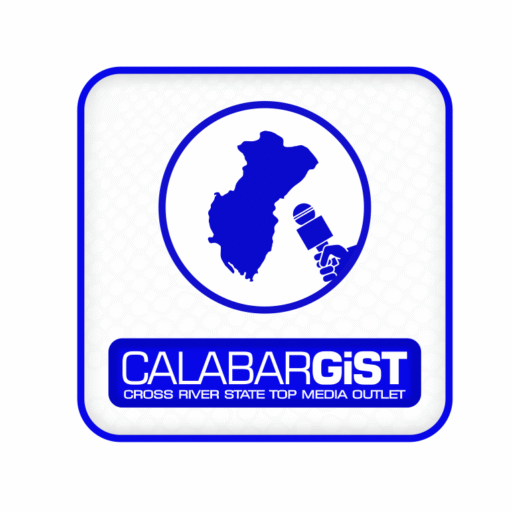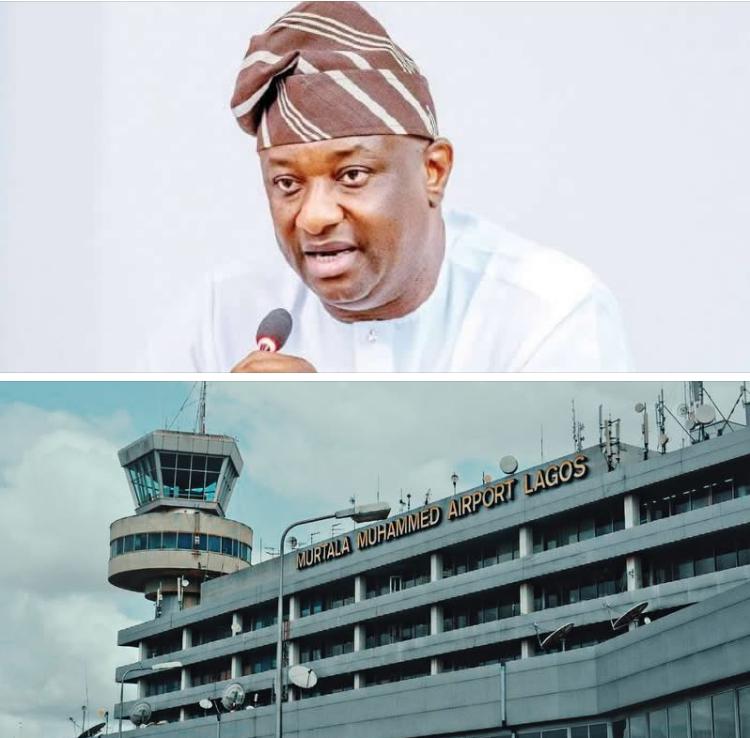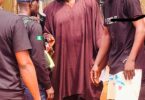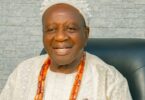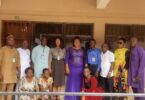By Joseph Ochang, Economic and Public Affairs Analyst
The Federal Government of Nigeria approved a whopping ₦712 billion to renovate just one terminal, Terminal One, of the Murtala Muhammed International Airport (MMIA) in Lagos.
Yes, ₦712 billion. Not for building a new city. Not for building 500 schools. Not for fixing power. But for renovating one terminal, mostly used by the wealthiest Nigerians and foreigners.
And to make it look better, the government compared it to the $19 billion renovation of JFK Airport in New York.
But let’s slow down.
JFK is not MMIA – Let’s be real
JFK serves over 50 million passengers every year.
MMIA barely handles 5 to 6 million
JFK connects the whole world; it’s a global gateway
MMIA connects mostly West Africa, with a few intercontinental flights.
Comparing JFK to MMIA is like comparing Banana Island to Usumutong, a rural village, in Abi LGA of Cross River; it’s not the same thing. The traffic, the economy, the purpose – everything is different.
Now Let’s Talk About Priorities
Imagine what ₦712 billion could do if it were used to build affordable mass housing for Nigerians instead of glass walls and imported tiles at the airport.
Let’s break it down.
What ₦712 Billion Can Do If Invested in Housing
Let’s say we want to build affordable 2-bedroom homes that cost ₦10 million each (land, building, water, electricity, etc.):
₦712 billion ÷ ₦10 million = 71,200 homes
That’s over 71,000 families off the street.
That’s 71,000 families with a roof over their heads, steady water, power, and safety.
That’s also hundreds of thousands of jobs created for: Bricklayers, Electricians, Local suppliers, Transporters. Food vendors on site. The money stays within the economy, circulating in local hands, not going to foreign construction companies.
The Multiplier Effect of Housing
When you invest in mass housing:
You employ thousands of Nigerians.
You raise living standards. You grow small businesses around new communities. You increase school enrollment as families settle. You reduce crime and insecurity linked to homelessness and slums.
And you give people something to live for: dignity. Now Compare That to an Airport Renovation
Let’s be honest: most Nigerians will never use MMIA in their lifetime.
A flight ticket from Lagos to Abuja is now over ₦150,000 one way.
Meanwhile:
Minimum wage is ₦70,000/month
Over 80% of Nigerians earn less than ₦250,000/month
That means most Nigerians can’t afford to fly even once a year. We are trekking long distances, queuing for buses, and struggling to make ends meet.
So, who are we spending ₦712 billion for?
Democracy Means People First
Democracy is supposed to be:
“Government of the people, by the people, and for the people.”
How is this “for the people” when:
Over 20 million Nigerians are homeless or living in overcrowded slums?
Schools have no roofs. Hospitals lack beds , Roads are death traps. Electricity is unstable. How is spending billions on a terminal that serves the elite democratic? What Should Be Done Instead? We’re not saying airports shouldn’t be improved. But let’s fix the basics first.
We need to:
House our people
Feed our children
Fix schools and hospitals
Create jobs
₦712 billion could change lives, not just polish tiles and install imported escalators.
This isn’t about denying the need for airport improvements; safety and functionality matter. But a ₦712 billion price tag for a terminal used by a small fraction of the population doesn’t stack up when people lack access to basic needs. It’s like buying a gold‐plated car when your home has no water or electricity.
Nigerians deserve infrastructure that touches everyone’s lives, not just those who can afford air travel.
A shiny airport doesn’t mean progress when millions can’t afford shelter.
Imagine a Nigeria where:
Everyone has a safe place to sleep. Communities are clean, lit, and functional Children go to school from real homes, not from makeshift shacks.
That’s what true development looks like.
We need to start asking the hard questions:
Who benefits from these big projects?
Is this what the average Nigerian needs now?
If democracy is truly “for the people,” then ₦712 billion should be used to touch more lives, not just renovate a terminal that only a few ever get to use.
